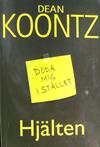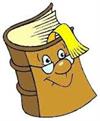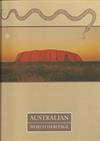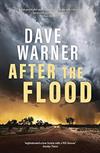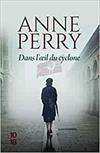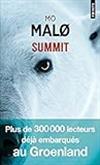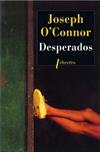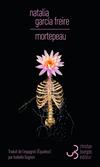
The Brooklyn Follies: A Novel
by Paul Auster | Literature & Fiction | This book has not been rated.
ISBN: 0312426232 Global Overview for this book
ISBN: 0312426232 Global Overview for this book
Registered by MagRoxYou on 9/28/2008
1 journaler for this copy...
Editorial Reviews
From Publishers Weekly
Starred Review. Nathan Glass, a retired life insurance salesman estranged from his family and facing an iffy cancer prognosis, is "looking for a quiet place to die. Someone recommended Brooklyn." What he finds, though, in this ebullient novel by Brooklyn bard Auster (Oracle Night), is a vital, big-hearted borough brimming with great characters. These include Nathan's nephew, Tom, a grad student turned spiritually questing cab driver; Tom's serenely silent nine-year-old niece, who shows up on Tom's doorstep without her unstable mom; and a flamboyant book dealer hatching a scheme to sell a fraudulent manuscript of The Scarlet Letter. As Nathan recovers his soul through immersion in their lives, Auster meditates on the theme of sanctuary in American literature, from Hawthorne to Poe to Thoreau, infusing the novel's picaresque with touches of romanticism, Southern gothic and utopian yearning. But the book's presiding spirit is Brooklyn's first bard, Walt Whitman, as Auster embraces the borough's multitudes—neighborhood characters, drag queens, intellectuals manqué, greasy-spoon waitresses, urbane bourgeoisie—while singing odes to moonrise over the Brooklyn Bridge. Auster's graceful, offhand storytelling carries readers along, with enough shadow to keep the tale this side of schmaltz. The result is an affectionate portrait of the city as the ultimate refuge of the human spirit. (Jan.)
Copyright © Reed Business Information, a division of Reed Elsevier Inc. All rights reserved. --This text refers to the Hardcover edition.
From The New Yorker
After a "sad and ridiculous life" in the suburbs, Nathan Glass retires, gets divorced, and moves to Brooklyn to die. To pass the time, he decides to write an account of mishaps and mistakes, beginning with his own—"The Book of Human Folly." "The tone would be light and farcical throughout," he says, "and my only purpose was to keep myself entertained." Auster seems to have had a similar intent. A chance encounter with a long-lost nephew leads Nathan into an unlikely second act, involving a longer-lost niece, her runaway daughter, and a host of lively Brooklyn caricatures—a gay used-bookstore owner, a tough widow, an H.I.V.-positive drag queen—all in the midst of unlikely second acts themselves. Nathan narrates increasingly absurd events with persistent cheer, a tone mirrored by the blinkered optimism and liberal conviction of pre-9/11 Park Slope; it's a combination that soon seems less hopeful than hollow, and profoundly disengaged.
Copyright © 2006 The New Yorker --This text refers to the Hardcover edition.
From Publishers Weekly
Starred Review. Nathan Glass, a retired life insurance salesman estranged from his family and facing an iffy cancer prognosis, is "looking for a quiet place to die. Someone recommended Brooklyn." What he finds, though, in this ebullient novel by Brooklyn bard Auster (Oracle Night), is a vital, big-hearted borough brimming with great characters. These include Nathan's nephew, Tom, a grad student turned spiritually questing cab driver; Tom's serenely silent nine-year-old niece, who shows up on Tom's doorstep without her unstable mom; and a flamboyant book dealer hatching a scheme to sell a fraudulent manuscript of The Scarlet Letter. As Nathan recovers his soul through immersion in their lives, Auster meditates on the theme of sanctuary in American literature, from Hawthorne to Poe to Thoreau, infusing the novel's picaresque with touches of romanticism, Southern gothic and utopian yearning. But the book's presiding spirit is Brooklyn's first bard, Walt Whitman, as Auster embraces the borough's multitudes—neighborhood characters, drag queens, intellectuals manqué, greasy-spoon waitresses, urbane bourgeoisie—while singing odes to moonrise over the Brooklyn Bridge. Auster's graceful, offhand storytelling carries readers along, with enough shadow to keep the tale this side of schmaltz. The result is an affectionate portrait of the city as the ultimate refuge of the human spirit. (Jan.)
Copyright © Reed Business Information, a division of Reed Elsevier Inc. All rights reserved. --This text refers to the Hardcover edition.
From The New Yorker
After a "sad and ridiculous life" in the suburbs, Nathan Glass retires, gets divorced, and moves to Brooklyn to die. To pass the time, he decides to write an account of mishaps and mistakes, beginning with his own—"The Book of Human Folly." "The tone would be light and farcical throughout," he says, "and my only purpose was to keep myself entertained." Auster seems to have had a similar intent. A chance encounter with a long-lost nephew leads Nathan into an unlikely second act, involving a longer-lost niece, her runaway daughter, and a host of lively Brooklyn caricatures—a gay used-bookstore owner, a tough widow, an H.I.V.-positive drag queen—all in the midst of unlikely second acts themselves. Nathan narrates increasingly absurd events with persistent cheer, a tone mirrored by the blinkered optimism and liberal conviction of pre-9/11 Park Slope; it's a combination that soon seems less hopeful than hollow, and profoundly disengaged.
Copyright © 2006 The New Yorker --This text refers to the Hardcover edition.
